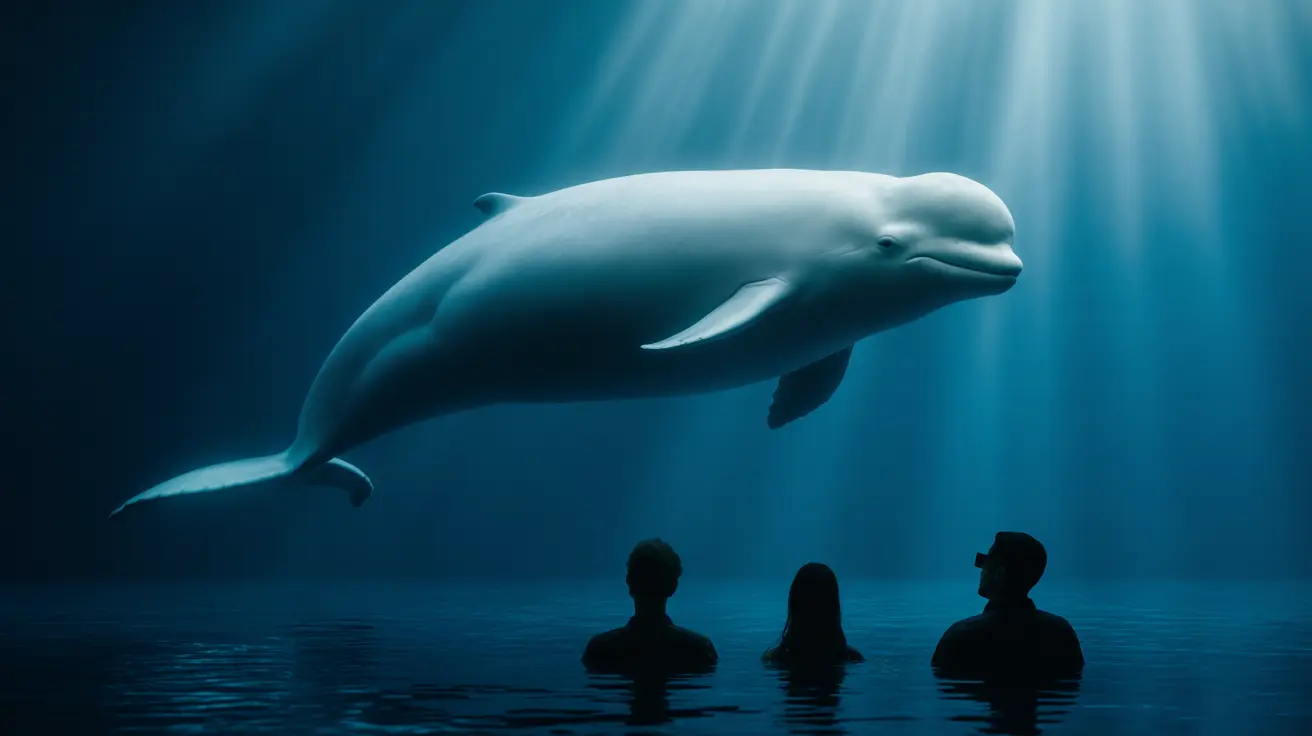As a devastating development in marine mammal conservation, Marineland Canada has announced it may have to euthanize 30 beluga whales due to financial difficulties. The now-defunct marine park's situation has sparked urgent calls from activists and conservationists seeking alternative solutions for these magnificent marine mammals.
The crisis emerged after Canadian authorities blocked the facility's attempt to export the belugas to a Chinese water park, leaving the institution struggling to maintain proper care for these intelligent cetaceans. This situation highlights the complex challenges surrounding marine mammal captivity and the urgent need for sustainable solutions.
The Current Situation at Marineland
The Ontario-based facility's financial constraints have created a critical situation for its resident beluga whales. With limited resources to provide adequate care and feeding, the park claims it has exhausted its options, leading to the controversial consideration of euthanasia as a last resort.
Impact of Bill S-203 and Current Legislation
Canada's marine mammal protection laws, particularly Bill S-203, have significantly influenced this situation. While the legislation prohibits new captures and breeding of cetaceans, it allows existing captive animals to remain under specific care conditions. However, these regulations have created additional challenges for facilities facing closure.
Marine Mammal Conservation Challenges
The situation at Marineland Canada represents a broader challenge in marine mammal conservation. Finding suitable homes for captive belugas requires careful consideration of multiple factors:
- Specialized care requirements
- Complex transportation logistics
- Limited availability of appropriate facilities
- High costs of maintenance and veterinary care
Sea Sanctuaries for Cetaceans
Marine mammal experts often advocate for sea sanctuaries as ideal solutions for retired captive belugas. These facilities provide more natural environments while ensuring necessary care and monitoring. However, the limited number of operational sanctuaries and the complexities of animal transport present significant hurdles.
Animal Welfare Considerations
The ethical implications of keeping beluga whales in captivity have long been debated among animal welfare advocates. These highly social and intelligent creatures require specific environmental conditions and social structures to thrive, making their care in artificial settings particularly challenging.
Beluga Whale Relocation Challenges
Moving beluga whales presents considerable risks and requires extensive planning:
- Careful health assessments
- Specialized transport equipment
- Expert veterinary supervision
- Appropriate acclimation protocols
Frequently Asked Questions
What is happening to the beluga whales at Marineland in Canada?
Marineland, a now-defunct marine park, has threatened to euthanize its captive beluga whales due to financial constraints and a ban on exporting them to China. Efforts are underway to find alternative homes for the whales, such as sea sanctuaries.
Why is it difficult to transfer beluga whales from Marineland?
Transferring beluga whales is challenging due to the high risk of mortality during transportation, the need for specialized care, and the limited availability of suitable destinations like sea sanctuaries.
What laws and policies affect the care of captive belugas in Canada?
Canada's Bill S-203, passed in 2019, prohibits capturing or breeding new cetaceans, but allows existing captive animals to remain under certain conditions. This law has raised questions about the long-term care of belugas in defunct facilities.
Moving Forward
The crisis at Marineland Canada serves as a crucial reminder of the complexities surrounding marine mammal captivity and the importance of developing long-term solutions for these magnificent creatures. While the immediate focus remains on finding alternatives to euthanasia, this situation underscores the need for better planning and resources for marine mammals in similar circumstances.
The conservation community continues to work towards finding humane solutions that prioritize the welfare of these intelligent marine mammals while respecting the legal and practical constraints involved in their care and potential relocation.






